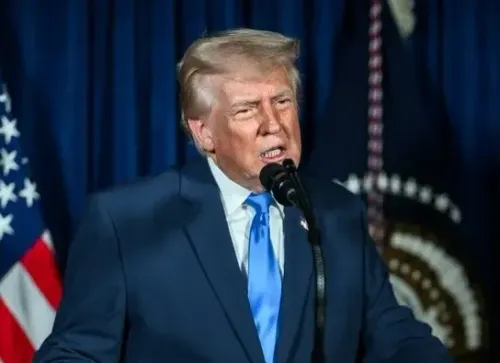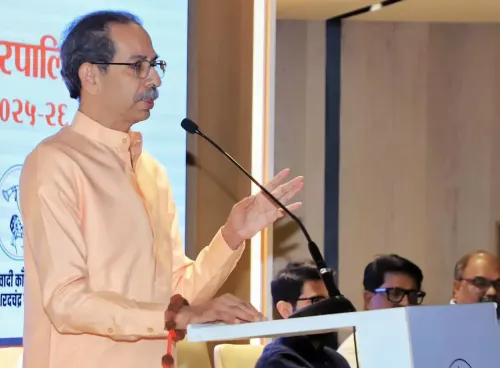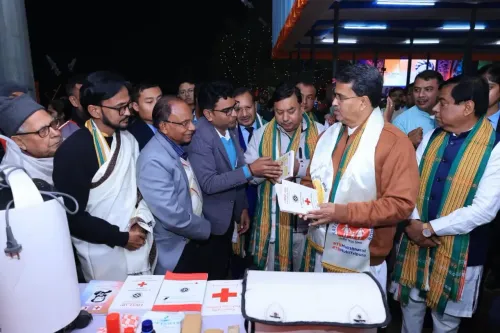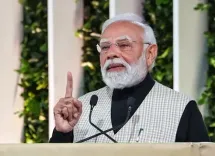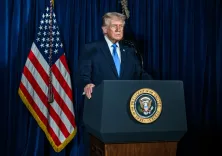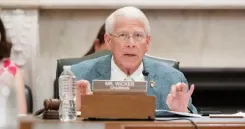Is Focus on Ground Development Better Than Ads Like AAP's?
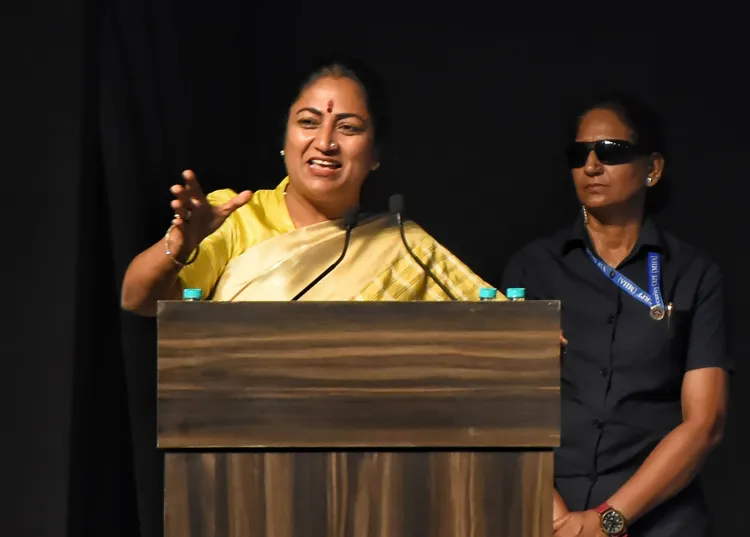
Synopsis
Key Takeaways
- 1,002 solar power plants to be installed in government buildings.
- Collective capacity of 55 MW of renewable energy.
- Focus on real development over advertisements.
- Commitment to fight pollution and enhance public welfare.
- New infrastructure projects, including a 66 kV grid sub-station.
New Delhi, Sep 26 (NationPress) Delhi Chief Minister Rekha Gupta revealed a significant initiative to establish solar power systems across 1,002 government buildings by January. She criticized the prior AAP administration for hampering the city's growth by focusing excessively on advertisements rather than tangible progress.
While speaking to an audience in Rithala, CM Gupta stated, "In just seven months, our administration has implemented decisive measures to accelerate development and enhance public welfare across various sectors," while condemning the Aam Aadmi Party (AAP) for stalling urban advancement.
"Their focus was solely on showcasing development through ads, whereas we are dedicated to real progress on the ground," she emphasized.
Underlining the government's strong commitment to solar energy, she noted, "Today marks the beginning of solar power installations in 1,002 government buildings throughout Delhi. These buildings will symbolize an energy self-sufficient Delhi."
These solar installations are projected to produce 55 MW of electricity. During a recent event, she inaugurated a 25 KW solar unit at a sewage treatment facility in Rithala, as part of a 15-day 'Seva Pakhwada' initiative to introduce new public services in honor of Prime Minister Narendra Modi's birthday on September 17.
Reflecting on the 15-year governance of Congress preceding AAP's 11-year rule, she remarked, "It took 78 years post-Independence for the Capital to receive its first compressed biogas plant to recycle cow dung that polluted the Yamuna."
She reaffirmed the government's commitment to combating pollution and advancing development alongside green energy, stressing the need for waste-to-energy facilities to address the city’s daily 12,000 MT waste challenge.
On the same day, CM Gupta inaugurated a 100-tonne per day (TPD) compressed biogas plant and an integrated CBG-CNG fuel station at Ghogha Dairy. She remarked that this solid waste-to-compressed biogas plant exemplifies the city's dedication to green energy.
Earlier, on September 20, she launched a 200 TPD biogas plant in Nangli Dairy.
In a post on X, CM Gupta shared, "A modern 25-kilowatt solar rooftop installed on the Delhi Jal Board building in Rithala will produce over 28,000 units of clean energy annually. In the future, we will install advanced solar plants on government buildings."
"We have also laid the foundation stone for a 66 kV grid sub-station in Mubarakpur Dabas, which will guarantee an uninterrupted and quality power supply to 16 feeder areas, including Karala and surrounding locations. Today, Narela has also received a modern fire station, equipped with advanced tools and effective disaster management systems," she stated.
Through these initiatives, Delhi is not only addressing longstanding issues but also paving new avenues for progress, she asserted.
"The now-flood-free Minto Bridge, e-buses operating on our roads, and the decreasing garbage piles serve as evidence of our progress. With the spirit to ensure that no corner of Delhi and no needy individual is overlooked, we are steadfastly advancing toward a developed Delhi and a prosperous India," she concluded.


